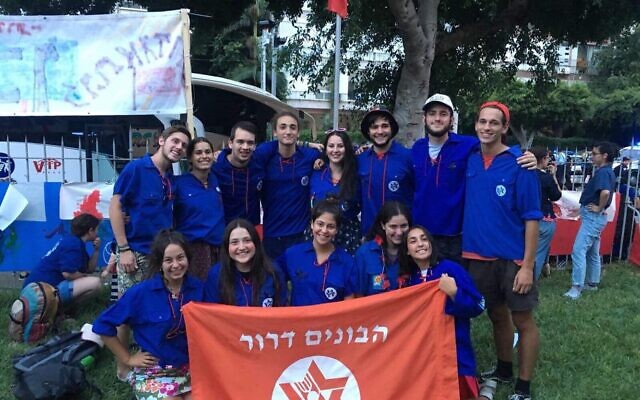Shnatties used as ‘pawns’
Next year's Habonim Shnat program is in doubt after a row over providers and concerns about 'long-standing educational and safety inadequacies'.
THE 2020 Habonim shnatties have become the victims of a fight between Habonim Dror Australia (HDOZ) group leaders (bogrim) and both HDOZ’s Parents & Friends (P&F) group and the international Habonim Dror Olami (HDO) movement.
With less than two months until they are due to leave Australia, not only do bogrim not have a program to offer their shnatties, HDOZ’s future may be in doubt with the P&F claiming it’s trying to avoid a situation which “will likely lead to [its] collapse”.
HDOZ’s Shnat program has been run by HDO for several years, but Australian bogrim have become disillusioned with what’s on offer, and earlier this year voted to change providers.
In a statement to The AJN, they claimed the program “no longer reflects our movement’s values and has failed to address long-standing educational and safety inadequacies”.
They added that a survey of the 2019 shnatties revealed that 95 per cent felt they received too little or far too little education.
The bogrim attempted to organise a program through another service provider; however, it wasn’t approved by Masa Israel – the Israeli government and Jewish Agency’s Israel-experience oversight body – which means students would not receive financial assistance from Masa, and it won’t be supported by the Zionist Federation of Australia (ZFA).
HDOZ leaders shocked members earlier this year when they said anyone who participates in the HDO program would not be able to lead HDOZ when they return to Australia, but after pressure they backtracked from that threat.
While HDOZ leaders said they are still hoping for the program to be approved by Masa, on Tuesday the ZFA wrote to parents, stating, “Masa have advised us that the decision for 2020 is final and they will not be revisiting that, particularly given the short time before the program commences.
“They have a range of concerns which require further investigation and have recommended that the various parties involved in the issue move forward together to develop an organised, agreed response for 2021.”
As of Wednesday morning, HDOZ had no back-up program for next year’s shnatties, but The AJN understands it may be forced to recommend they join the Hashomer Hatzair (Hashy) program instead.
The bogrim said they were “distressed” that the 2020 shnatties “have become pawns in an internal battle”.
While the short-term problem is the 2020 shnatties, the P&F say the bigger problem is the long-term viability of HDOZ.
HDO – which is aligned with the Jewish Agency, World Zionist Organisation and Israel’s Labour Party – grants funding for Habonim’s shlichim in Australia. That will likely cease if HDOZ and HDO are not affiliated.
The P&F claim the bogrim are shifting allegiances from HDO in Israel to Dror Israel, an offshoot of Habonim. “We are not stating that Dror is a cult, but that there are aspects of its behaviour that are cult-like,” the P&F wrote in September.
“These include intolerance of dissent, a lack of transparency, and a disproportionate focus on group dynamics resulting in an unsafe environment.”
The P&F, which controls many of HDOZ’s assets, said it respects the movement’s right to make its own decisions, but in extreme circumstances it must act as the gatekeeper to ensure dangerous or irresponsible decisions are not made. “In our view we would be negligent – failing our responsibilities as parents and community members – to continue to support HDOZ in its current form.
“We have commenced withdrawing our support for HDOZ. We are desperately trying to avoid that situation which will likely lead to the collapse of HDOZ.”
HDOZ leaders, however, claim that the P&F have taken a “paternalistic approach in controlling resources and information”.
“Despite being a youth movement of responsible young adults, the leadership of Habonim Australia now feels it lacks self-determination.
“Instead, a group of older people in Israel and Australia – removed from the day-to-day reality of the local youth movement – wish to maintain the status quo, despite the unambiguous dissatisfaction of almost all individuals who have participated in the program over the last several years,” HDOZ leaders claim.


comments